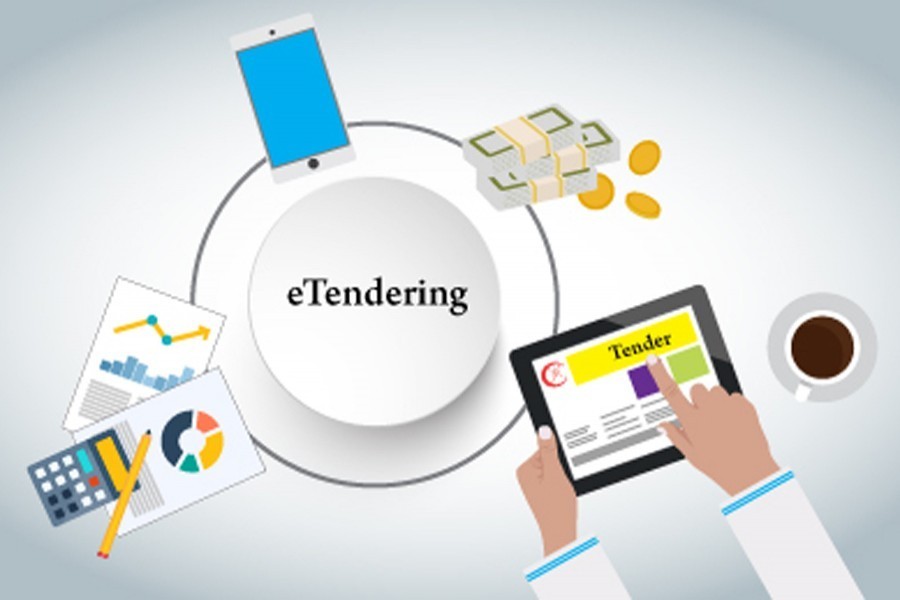It is heartening to note that in spite of many difficulties and loopholes for quite a while, electronic tendering seems to be finally set to become a boon in the country's public procurement. Parting with the lengthy paper-based exercise often fraught with serious lack of transparency has been a crucial need to ensure fair play in the public procurement domain for ages. One of the most flawed and tainted systems, public procurement under age-old conventional practices has given rise to vices of all hues from reckless malpractices to rent seeking and even outright flouting of rules and regulations. The vision of digital Bangladesh is thus the most sought-after solution to do away with corrupt practices. E-tendering is not only a highly efficient tool to part with much of the cumbersome works at bidding and post-bidding stages, it has also proven potential to ensure transparency -- a much needed goal that governance demands in order to be credible. It is easily accessible, secure and cuts costs considerably.
It has been learnt from news reports that between fiscal year 2012 and FY2018 an estimated $600 million has been saved due to tendering through Electronic Government Procurement (e-GP). This has been made public by the World Bank in its latest assessment on the public procurement system in Bangladesh. Moreover, average procurement time from the invitation of bidding to contract signing came down to 59 days from 93 days during FY2011 to FY2019, according to WB report titled "Assessment of Bangladesh Public Procurement System". But this is not to say that e-tendering is followed in all cases. A news item published in this newspaper says that most government offices are yet to introduce e-tendering though it is one of the priorities of the government's 'Digital Bangladesh' initiatives. More than 70 per cent of the works are still reportedly done through the age-old manual system, although the Prime Minister had instructed all the ministries to implement e-tendering more than a couple of years back. The main reason, understandably, is severe inertia amongst government officials who, having been incorrigibly tuned to the manual and cumbersome methods of tendering, do not find the sophisticated e-tendering device friendly enough to make their job easier.
Way back in 2004, the government with the assistance of the World Bank developed a website on e-government procurement to invite bids through the portal where the state-owned agencies can flout their tenders, as a starter. Later, the 'Government Procurement (e-GP) Guidelines' were prepared under the provision of Public Procurement Rules (PPR)-2008 where the e-GP system was made compulsory for all concerned for procurement of goods, works and services using public funds.
In view of the assessment report on the positives of e-tendering in terms of saving time and money as well as ensuring transparency, it is high time that utmost efforts were in place to see that e-tendering is practised by all government agencies without fail.


